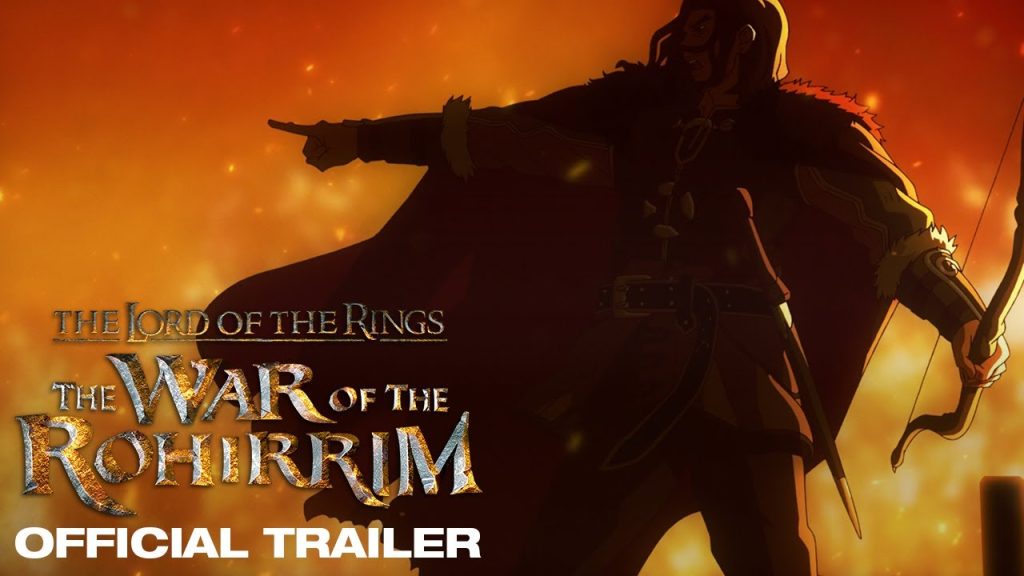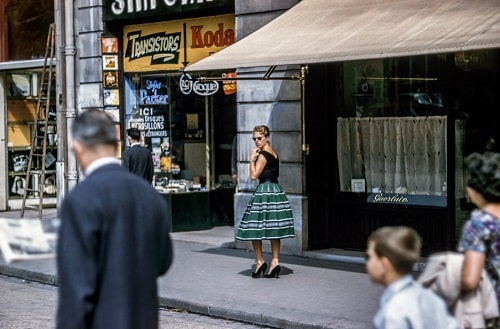Twenty years ago, Garden State arrived in theaters, capturing the hearts of audiences with its quirky charm and poignant storytelling. Directed by and starring Zach Braff, alongside Natalie Portman, this indie film not only marked a pivotal point in cinema but also became a cultural touchstone for a generation grappling with themes of identity, homecoming, and emotional healing.
As we revisit Garden State two decades later, it’s fascinating to see how it holds up in today’s landscape. Does it still resonate with the same intensity, or has its allure faded with time? This review delves into the film’s enduring legacy and explores its impact on both past and present audiences, inviting fans and newcomers alike to reassess its place in the cinematic canon.
Overview of Garden State
Released in 2004, “Garden State” emerged as a defining film for many of its viewers, encapsulating a mixture of existential introspection and youthful disillusionment. Its heartfelt narrative and indie aesthetic left a memorable imprint on the indie film genre.
Plot Synopsis
“Garden State” follows the story of Andrew Largeman, played by Zach Braff, who returns to his hometown in New Jersey after a decade away to attend his mother’s funeral. Disconnected and numbed from years of psychiatric medication, Andrew’s journey is one of self-discovery and reconnection. Throughout the film, he meets a series of quirky characters who help him reflect on his life and choices. Among them is Sam, portrayed by Natalie Portman, a vibrant young woman who challenges Andrew to open his heart again. The narrative delicately balances themes of grief, love, and the quest for authentic self-expression, unfolding against the suburban backdrop of the Garden State itself.
Key Characters
Andrew Largeman, the protagonist, is portrayed as a struggling actor who returns to his roots to confront his past and present emotions. His character represents the theme of self-exploration and the impact of emotional suppression. Natalie Portman’s character, Sam, serves as a catalyst in Andrew’s journey. She is eccentric, lively, and carries her own deep-seated pains, which she masks with a free-spirited exterior. Another noteworthy character is Mark, an old friend of Andrew, played by Peter Sarsgaard. Mark’s journey intertwines with Andrew’s self-discovery, depicting the complexities of old friendships and new realities. The characters collectively highlight the film’s exploration of mental health, healing, and the struggle to find one’s place in the world.
Cultural Impact Over Two Decades
In the two decades following its release, “Garden State” has left an indelible mark on popular culture, influencing various aspects of cinema and music with its unique style and emotive resonance.
Influence on Independent Cinema
“Garden State” emerged as a beacon for independent filmmakers, showcasing how nuanced storytelling paired with modest budgets could yield substantial artistic and commercial success. The film’s reception at Sundance and subsequent box office success sparked a surge in interest for indie films among mainstream audiences. Its approach to character-driven narratives with deep emotional and existential themes attracted a demographic that sought more than just entertainment in cinema; they sought connection and reflection. Notably, “Garden State” helped to broaden the visibility of indie films in the global market, encouraging distributors to invest in projects that were previously considered risky. This shift led to a golden era for indie cinema in the mid-2000s, inspiring a new generation of filmmakers who saw Zach Braff’s success as a template for blending personal storytelling with universal appeal.
Contributions to Soundtracks in Film
The soundtrack of “Garden State” arguably became as iconic as the film itself, reverberating through the landscape of movie music for years. Curated by Zach Braff, the soundtrack featured a blend of indie rock and folk music, including tracks from The Shins, Iron & Wine, and Frou Frou. This compilation not only underscored the film’s emotional beats but also propelled its musical selections to new heights of popularity. The film’s strategic use of the song “New Slang” by The Shins cemented the track as a cultural touchstone and highlighted how effectively music could enhance narrative cinema. Additionally, the success of the soundtrack demonstrated the power of music to complement a film’s story, influencing how future films approached music integration. It set a precedent for soundtracks to be meticulously crafted to reflect a film’s atmosphere, encouraging filmmakers to consider their soundtracks as an integral part of the storytelling process, rather than just a background element.
Performance and Legacy
Two decades since its premiere, “Garden State” remains a significant film, celebrated for its compelling performances and visionary direction. Its impact on cinephiles and aspiring filmmakers alike is indelible, proving that passion and authenticity can resonate through time.
Acting
In “Garden State”, the performances are a key component of its enduring appeal. Zach Braff, who not only directed but also played the protagonist Andrew Largeman, delivered a remarkably understated yet poignant portrayal of a man navigating the complexities of returning home and confronting his past. Natalie Portman’s portrayal of Sam, an eccentric and spirited young woman, stands out as particularly impactful. She brought a genuine sense of brightness that served as a perfect counterbalance to Braff’s more subdued performance. This dynamic between the characters helped to enhance the emotional depth of the film.
The supporting cast, including Peter Sarsgaard as Mark, Andrew’s old friend, contributed layered performances that enriched the narrative. Each character, no matter how briefly on screen, added to the film’s texture, making the world of “Garden State” feel more lived-in and authentic. These performances have been praised for their realism and emotional weight, factors that have helped “Garden State” maintain its relevance and resonate with new generations of viewers.
Direction
Zach Braff’s directorial debut with “Garden State” was bold and refreshingly original. His approach to storytelling, characterized by a mixture of humor, poignancy, and a somewhat melancholic tone, offered a fresh perspective in the landscape of independent cinema. Braff’s use of visual motifs and an evocative soundtrack helped to create a distinctive atmosphere that is still memorable to audiences today.
His direction effectively captured the introspective journey of Andrew, employing a delicate balance between the film’s narrative and its thematic elements. Braff’s ability to draw authentic performances from his cast, coupled with his nuanced understanding of the film’s aesthetic, demonstrates a maturity that many debut directors might lack. This careful orchestration of both visual and narrative elements in “Garden State” has established Braff not only as a thoughtful actor but also a visionary director. His work on this film has influenced many independent filmmakers, showing that comprehensive storytelling coupled with emotional depth can leave a lasting impact on audiences.
Comparison to Contemporary Films
When “Garden State” debuted, it arrived amid a notable period for American indie films, marked by their introspective narratives and character-driven stories. This section explores how “Garden State” stacks up against its contemporaries and examines how its reception both at the time of its release and today reflects broader trends and shifts in film appreciation.
Similar Films of the Era
At the time of its release, “Garden State” was part of a wave of indie films that focused heavily on personal transformation and complex emotional landscapes. Films such as “Lost in Translation” and “Eternal Sunshine of the Spotless Mind” also explored themes of self-discovery and emotional turmoil, resonating with a similar demographic of viewers. Like “Garden State,” these films offered a departure from mainstream Hollywood blockbusters by delivering nuanced performances and thoughtful narratives that engaged audiences on a more intimate level. Each of these films featured a distinctive visual and narrative style, yet it was “Garden State” that arguably stood out for its blend of dry humor with deep emotional undercurrents, set against the backdrop of suburban New Jersey, contrasting Sofia Coppola’s and Michel Gondry’s more whimsical and surreal settings.
Reception at Release Versus Present Day
Upon its release, “Garden State” received mixed reviews, with some critics praising its heartfelt story and soundtrack, while others criticized it for what they perceived as navel-gazing indulgence. However, over the years, the film has cultivated a dedicated following who appreciate its honest depiction of young adulthood and existential dread. Contemporary reviews often highlight the film’s influence on the indie genre, respecting Braff’s directorial choices and the lasting impact of its music on cinematic storytelling. Audience perceptions have shifted over time from viewing it as another indie film to recognizing it as a defining piece of early 2000s cinema. Today, new generations continue to discover “Garden State,” finding its themes of authenticity and emotional struggle as relevant now as they were two decades ago, signaling its transition from contemporary critiques to a more cherished status in modern film retrospectives.
Personal Anecdotes and Reflections
As the narrative transitions from the broader impact of “Garden State” to more intimate, personal connections, it’s clear the film has left a unique imprint on its audience. Moving from a general discussion into individual experiences, this section delves into how “Garden State” remains a deeply personal journey for many.
Hands-on Experience with the Film
For many, watching “Garden State” was an experience punctuated not just by the narrative itself, but by the context in which they viewed it. One viewer recalls their first encounter with the film in a small, crowded theater where the palpable enthusiasm added a communal sense of discovery. During these viewings, lines like “You gotta hear this one song — it’ll change your life; I swear” didn’t just resonate on screen but echoed through the lives of young adults grasping for direction and understanding. The film’s portrayal of Andrew returning to his hometown and confronting his past mirrors a universal journey, making the personal reflections of viewers equally poignant. Years later, the allegoric voyage Andrew takes still prompts viewers to revisit their own paths to self-realization, often leading to new insights with each viewing.
Personal Impact
The impact of “Garden State” extends far beyond its initial release, continuing to influence personal growth and self-reflection. Various fans describe the film as a milestone in their personal development, often associating it with periods of significant transition. For some, Natalie Portman’s character, Sam, represents an ideal of embracing one’s quirks and imperfections, encouraging them to accept themselves more fully. Her freeness and authenticity have inspired countless young women to own their stories without shame. Another profound effect is the shift in perspective it offers on relationships and emotional vulnerability. As viewers age, their understanding of the film’s subtleties evolves, bringing new meanings and appreciations. This ongoing relationship with the film highlights its capacity to grow with its audience, continually providing fresh lenses through which to view their successes, struggles, and existential searches for meaning.
Conclusion
Reflecting on “Garden State” two decades after its release it’s clear the film remains a poignant piece in the mosaic of American indie cinema. Its exploration of universal themes like self-discovery and emotional healing continues to touch new generations. As viewers find personal connections with Andrew and Sam’s journey they’re reminded of the power of film to influence and inspire. Whether it’s revisiting the movie after many years or experiencing it for the first time the resonance of “Garden State” endures offering a timeless invitation to reflect on our paths and the places we call home.



 RELATED POSTS
RELATED POSTS





0 Comments